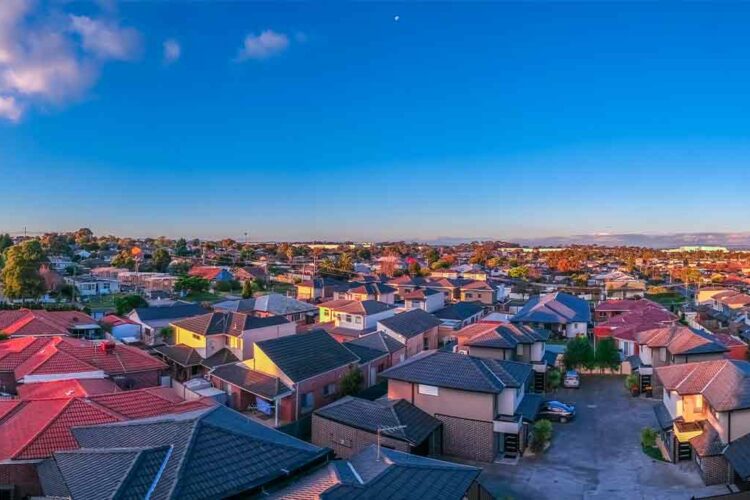The Reserve Bank of Australia (RBA) handed down its fourth cash rate decision for 2023 at its monthly board meeting on Tuesday, 2 May.
One year on from its first cash rate increase of this current cycle, Australia’s central bank opted to raise the cash rate by 25 basis points to 3.85 per cent.
There was little consensus among experts and economists about which direction the RBA would lead the cash rate in, with last month’s Australian Bureau of Statistics (ABS) Consumer Price Index (CPI) for the first quarter of 2023 indicating inflation had fallen from its peak, the figure remains firmly above the central bank’s inflation target.
NAB, Westpac, and ANZ announced their expectations of a cash rate pause last week, while the Commonwealth Bank of Australia (CBA) retained its position of a cash rate increase.
Following a brief rate hike reprieve last month, the RBA’s decision to again increase the cash rate indicates a continued concern around services inflation, according to Anneke Thompson, chief economist at CreditorWatch, who added the board’s decision aims to “strip more demand from the Australian economy.”
While last month’s Australian Bureau of Statistics (ABS) Consumer Price Index (CPI) indicated a cooling of headline inflation, Ms Thompson explained services inflation is yet to peak.
She explained “Admin and Support and Accommodations and Food Services recorded the largest increases in turnover in the year to February 2023, according to the ABS Business Turnover Index.”
“The RBA will be hoping this latest move will put the economy deep into restrictive territory, and help to slow demand in the services space to ease price rises,” she added.
PropTrack senior economist, Eleanor Creagh, believes “the impact of interest rate rises is being counterbalanced by stronger housing demand and tight supply conditions.”
While “the path for home prices in the months ahead will be influenced by many opposing factors,” Ms Creagh noted headwinds remain.
“But, even as interest rates continued to rise this month, the end is in sight. It is likely the bottoming process will continue, with the bounce in home prices firming and values stabilising as uncertainty eases,” she said.
Ms Creagh added “a home shortage exacerbated by high construction costs and industry challenges will also underpin values as the population grows.”
In forecasting a May cash rate increase, described as a “line ball decision,” NAB economists revealed their belief the cash rate has reached its peak, adding expectations of rate cuts throughout the first half of 2024.
“It has become increasingly clear that interest rates are nearing their peak, and the May meeting is a line-ball decision,” they said.
“The labour market remains very tight, inflation is well above target, and the risks on wage growth remain to the upside. However, it is slowing as post-COVID momentum fades and the monthly CPI appears to confirm RBA and market expectations that inflation has passed its peak.”
Key question marks remain for the RBA board, notably whether the current level of interest rates is “sufficiently high enough to ensure inflation sustainably returns to target in a reasonable time frame,” with this largely dependent on the containment of wage pressures and inflation remaining anchored.
“Based on the RBA’s statements and forecasts, a peak cash rate of 3.6 per cent is unlikely to be seen as sufficiently restrictive by the Board, necessitating one more increase before a pause to assess how the effects of primary monetary policy tightening flow through,” the big four’s economists added.
Ms Thompson shared their sentiments, adding “we are highly likely to be at the peak of the monetary policy tightening cycle, as the current settings will put enormous pressure on borrowers, particularly those that secured a home loan in the past two years.”
Despite the RBA’s decision to lift the cash rate once again, Matthew Tiller, LJ Hooker Group’s head of research believes the increased number of open home attendees over recent months is likely to continue, though he noted “it is likely buyers’ activity will be more cautious until the RBA holds for a couple of consecutive months.”
With the agency predicting an increase in sales activity and listings in the back half of 2023, he believes “there is still a lot of positivity in the property market reflected by national house price growth and high auction clearance rates during the past two months.”
“New housing supply remains low at a time when we have very strong population growth, internal migration, and increasing investor interest, so there is a lot of demand driving the market over the short term,” he said.
Even with today’s announcement, Mr Tiller stated “there is a sense that the hiking cycle is close to the end and that is giving comfort to people.”
“It allows people to adjust their budget accordingly to purchase or hold onto their property, meaning fewer distressed listings coming onto the market,” he concluded.


